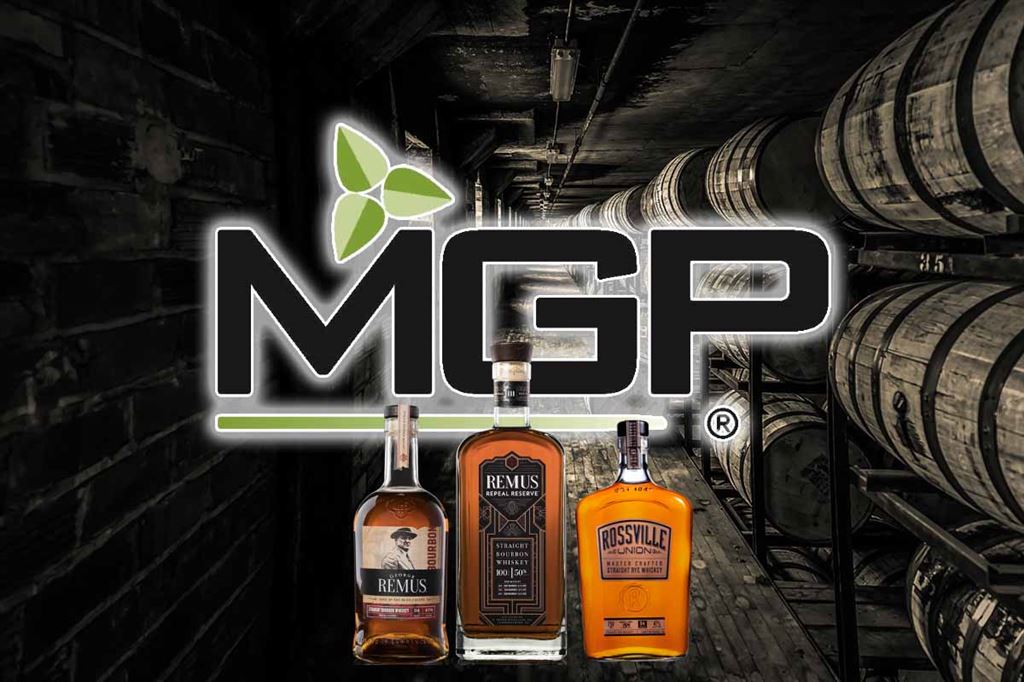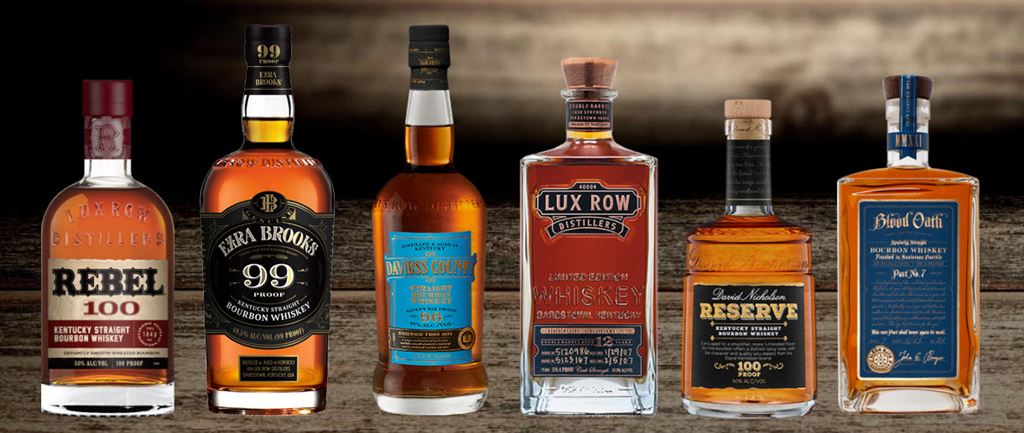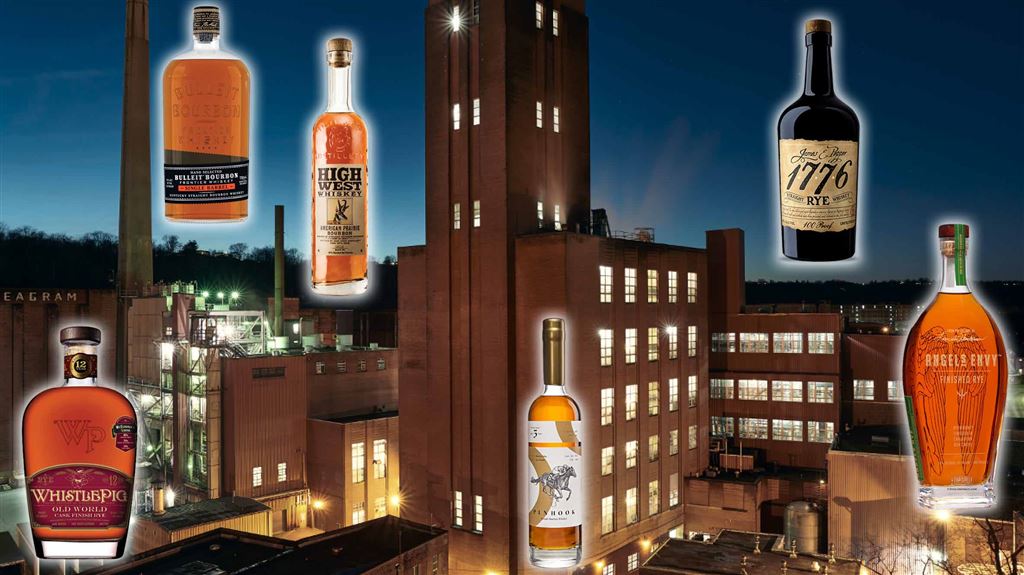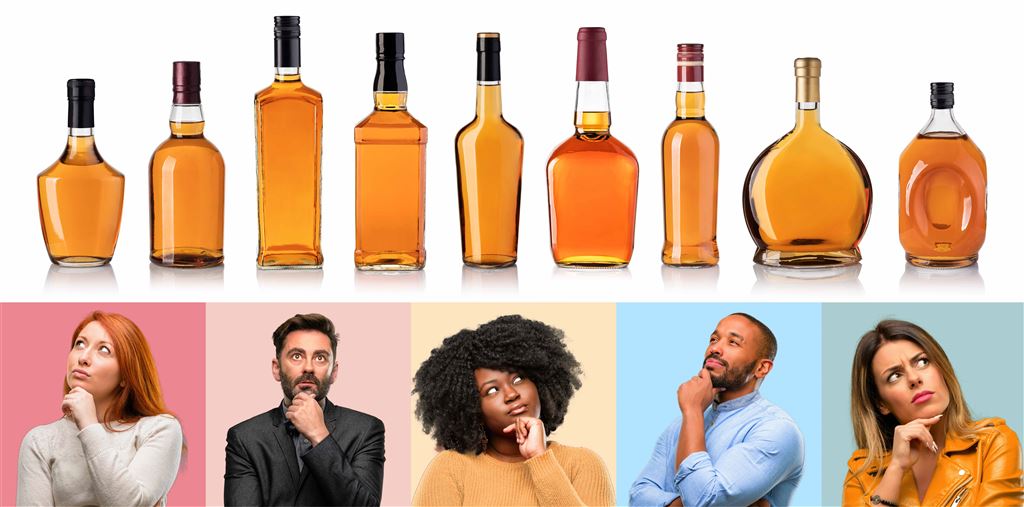It is well known within the whiskey community that many "distilleries" buy their whiskeys from the same source. This fact may come as a surprise to many new to the bourbon and rye world because the whiskey brands do not readily disclose this information.
In fact, in 2016, there were at least 130 "distilleries" sourcing from this whiskey power broker, according to Steve Ury's Complete List of American Whiskey Distilleries & Brands. Now, in 2022, we may estimate or conclude by extrapolation that the current number of distilleries sourcing is nearly 200.
This powerful and dominant source is Midwest Grain Products (MGP).

Who is Midwest Grain Products (MGP)?
Founded by Cloud L. Cray, Sr., in 1941, Midwest Grain Products (MGP) is a distillery in Lawrenceburg, Indiana, whose core business is supplying distilled spirit products to companies with their own brand. They are the largest U.S. supplier of rye whiskey.
MGP is also the largest U.S. supplier of specialty wheat proteins and starches. Additionally, they produce and sell corn oil, livestock feed, and fuel-grade alcohol to small startups and global brands. However, this article will focus on whiskeys, ryes, and bourbons.
Midwest Grain Products's massive and secretive ingredients property comprises a whopping 92 buildings on 300 acres. This property is impressive considering their distillery is not open to the public, nor do they offer tours, have a gift shop, or give tastings.
MGP Brands
In 2021, MGP acquired and merged with Luxco, Inc. As a result, MGP's Branded Spirits division now includes whiskey brands such as Ezra Brooks, Rebel, Blood Oath, David Nicholson, and Daviess County bourbon. They have an impressive portfolio when combining those brands with George Remus Straight Bourbon, Rossville Union Straight Rye, Yellowstone Kentucky Straight Bourbon, etc.

Even though MGP has its own brands, its focus is sourcing distilled and aged spirits to other companies.
Popular Whiskeys Sourced from MGP
Many popular brands purchase their core whiskey from Midwest Grain Products. You may have assumed that these well-known brand names distilled their liquor, but that is not always the case. As each year passes and more distilleries open, the source of their distillates is becoming more and more cloudy. For instance, Barrell Craft Spirits, probably the number one blender and finisher of whiskeys in the industry, sources from various distilleries and not just MGP.
While MGP does produce grain spirits, bourbon, and other whiskeys, most people agree that it's with their rye that MGP truly excels. Their signature rye whiskey is 95-percent rye grain and used in whiskeys such as Angel's Envy, Bulleit Rye, Filibuster, George Dickel Rye, James E. Pepper, Smooth Ambler, and Templeton Rye.

Well-Known MGP Sourced Whiskeys
- Angel's Envy Rye
- Barrell Whiskey (specific batches)
- Bulleit Rye
- High West
- James E. Pepper 1776 Bourbon & Rye
- Joseph Magnus Bourbon
- Pinhook Bourbon
- Redemption Bourbon & Rye
- Rough Rider Bourbon & Rye
- Sagamore Spirit Rye
- Smooth Ambler Old Scout Bourbon, Rye, and Corn Whiskey
- Whistle Pig Old World Rye
- Willett Rye
Are Most Whiskeys the Same?

A person might think that if many whiskeys are sourced from Midwest Grain Products, there is not much difference between them except the label. While this may seem like sound reasoning, nothing could be further from the truth.
Many distilleries, blenders, and bottlers mix and match different ages and types of whiskeys to create unique flavor profiles after receiving them from a source. This blending was a way for them to differentiate themselves competitively, often while their alcohol is aging. For instance, companies like Barrel Craft spirits mentioned earlier may finish sourced whiskey in different casks. They may even finish it in different casks and blend it with other finished or non-finished whiskeys. The result is a unique and different-tasting whiskey.
Even if a company only bottles a whiskey sourced from MGP and does not blend or finish it, it can potentially be unique. Each bourbon, barrel, and batch has unique characteristics because of their age, where they were housed during aging, their mash bill, their distillation method, and many other variables. Additionally, master distillers or tasting experts can pick a batch of bourbon and determine that it is better than another batch based on their tastes. So, the taste profile of the person selecting the batch from MGP is a distinguishing factor.
MGP Bourbon and Rye Mash Bills
Bourbon Mash Bills
- At least 51% Corn and 21% Rye - Sweet fruit, vanilla, caramel, and cream are layered until a rye spice develops in the finish.
- At least 51% Corn and 36% Rye - Heavy caramel and vanilla dominate the forward notes. Slight hints of cocoa, chocolate, and smoke provide complexity to the body. The finish balance is roasted nuts, rye spice, and caramel.
- At least 51% Corn and 45% Wheat - Rich sweetness from cream, vanilla, and fruit, with a creamy mouthfeel.
- At least 51%Corn and 49% Barley Malt - Malt chocolate sweetness, hints of sweet and dried fruit linger in the finish.
- 99% Corn - Sweet candy notes dominate. The finish follows this sweetness, eventually fading to corn grain.
Rye Mash Bills
- 51% Rye - Bold and spicy finish period as it ages. This whiskey displays the dominant notes of caramel, vanilla, and fruit associated with corn.
- 95% Rye - Caramel and vanilla forward notes fade to a complex spice and smokey body. The rye spice in the body carries into a long finish.
Historical Chronology and Key MPG Dates:
- 1941: Cloud L. Cray, Sr., founds the business after buying Atchison, Kansas, ethanol plant.
- 1947: Cloud L. Cray, Jr., becomes a company officer.
- 1950: McCormick Distilling Company is acquired.
- 1953: The company begins to produce wheat gluten.
- 1957: The business is incorporated in Kansas.
- 1965: The wheat starch division is launched.
- 1979: Cloud L. Cray, Sr., dies.
- 1988: The company goes public.
- 1998: Quotas on subsidized European imports of gluten are imposed.
- 2011: MGP Ingredients, Inc. was incorporated
- 2021: Acquired and merged with Luxco, Inc.
MPG Public Company Details
- Incorporated: 1957
- Employees: 341
- Revenue: $395.5 M (2020)
- Gross Profit: $98.8 M (2020)
- Net Income: $40.3 M (2020)
- Stock Exchanges: NASDAQ
- Ticker Symbol: MGPI
- NAIC: 311119 Other Animal Food Manufacturing; 311822 Flour Mixes and Dough Manufacturing from Purchased Flour; 312140 Distilleries